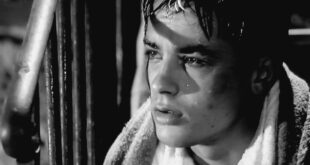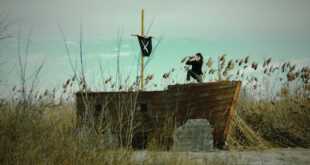
Italy recently said goodbye to one of its most beloved filmmakers. Cinematographer Giuseppe Rotunno passed away on Feb 7, 2021, at the age of 97.
Rotunno was one of the most prominent cinematographers of all time. Throughout the decades, he collaborated on cinematic masterpieces with the likes of Federico Fellini, Mario Monicelli, Luchino Visconti and Terry Gilliam.
The first film he worked was in 1943 as a camera assistant on “L’uomo dalla Croce” (The Man With a Cross) by Roberto Rossellini. In 1956, he made his debut as a cinematographer alongside director Carmine Gallone on “Tosca” followed by “Le notti bianche” (The White Nights) by Visconti and “Montecarlo” by Sam Taylor.
At the end of the 1950s, Rotunno shot “La grande guerra” (The Great War) by Mario Monicelli and “Policarpo, ufficiale di scrittura” (Policarpo, official writing) by Mario Soldati, for which he was honored for Best Black & White Cinematography and Best Color Cinematography at the 1960 Nastri D’Argento Awards.
The 1960s proved to be an epic decade for Rotunno. He made an indelible mark on global cinema with iconic films like Visconti’s “Rocco e i suoi fratelli” (Rocco and His Brothers), for which he won another Nastri D’Argento for Best Black & White Cinematography.
He teamed up with Visconti for three more projects during that decade: “Boccaccio ’70” in 1962; “Il gattopardo” (The Leopard) in 1963 for which he won another Nastri D’Argento for Best Color Cinematography; and “Lo straniero” (The Stranger) in 1967.
He also worked on Vittorio de Sica’s 1963 “Ieri, oggi, domani” (Yesterday, Today and Tomorrow); John Huston’s 1966 “The Bible,” which earned him Best Cinematography honors at the David di Donatello Awards; and on Fellini’s
“Toby Dammit” in 1968 followed by “Satyricon” 1969, for which Rotunno won another Nastri D’Argento Award for Best Color Cinematography.
The collaboration with Fellini continued on “Roma” (1972), “Amarcord” (1973), “Casanova” (1976), the musical satire “Prova d’orchestra” (Orchestra Rehearsal) (1978), “La città delle donne” (City of Women) (1980) and “E la nave va” (And the Ship Sails On) (1983).
Rotunno also served as cinematographer for Peter Del Monte’s 1987 “Julia & Julia.” The first feature film shot using high definition television taping techniques, it was transferred to 35mm film for a theatrical release.
In 1979, he earned an Oscar nomination for Best Cinematography and won a BAFTA Award for his work on Bob Fosse’s “All That Jazz.”
For more than 20 years, Rotunno was the head of cinematography at the Centro Sperimentale di Cinematografia. Italy’s national film school, it has a huge influence on new generations of Italian cinematographers.
Upon news of his death, numerous tributes surfaced on social media. He meant different things to different people. Filmmakers saw him as a master cinematographer who they wanetd to emulate. Others saw him as a nostalgic figure who was one of the last to represent a bygone era. To me, he was a complete artist like Fellini. They were at such a level, they seemed to operate in another realm, on another world.
The two Rotunno films that move me the most are De Sica’s “Sunflower” and Fellini’s “City of Women.” Every single shot is like a painting. His light in “City of Women” reminded me of a Caravaggio painting. When I watched it last year online, it took me about six hours to get through because I kept rewatching scenes. Dante Ferretti’s set design added to the artistry, but the light in that movie is wonder to behold.
Whenever I watched a film Rotunno worked on, I felt some comfort in knowing that he was still in the world. I felt that a bit of Giulietta, Federico, Marcello and Alberto were still alive through him. I will miss that feeling when I watch his films from now on.
He may be gone but his work is immortal. He left so many treasures for future generations to enjoy.
Jeannine Guilyard has been writing about Italian cinema for nearly two decades. You can follow her on Twitter, Instagram, Facebook, YouTube and check out her website.
 Fra Noi Embrace Your Inner Italian
Fra Noi Embrace Your Inner Italian






